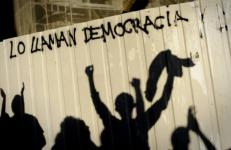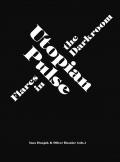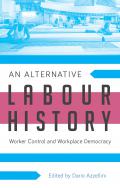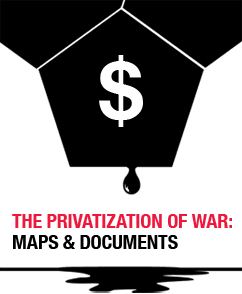All english articles
Ed.: this post is part of a series dealing with Austria’s history of fascism. Further entries can be found here.
Persecution and Exile of Austrian Sociological Authors During Fascism

Hundreds of Austrian sociological authors were persecuted and exiled during fascism between 1933 and 1945, most of them Jews, but also a large number of non-Jewish liberals, democrats, socialists and communists. The repression began during “Austro-fascism” between 1933/34 and the “Anschluss” to Nazi Germany in March 1938 – which was welcomed by most of the Austrian population. As soon as Austria joined the “Third Reich” German forces and Austrian volunteers unleashed a wave of terror imprisoning more than 70,000 people in a few days.
A Preview of the Future. Workers’ Control in the Context of a Global Systemic Crisis
Originating in a bold exhibition at the Secession in Vienna, this book examines moments in social and cultural life where there are glimpses of utopia, where other possibilities of being are imagined and even partially realised. The book moves through Latin American carnivals, forgotten histories, queer utopias, science fiction, workers' control of factories and much more.
Contemporary Crisis and Workers Control: Chapter 2
This chapter was taken from “An Alternative Labour History” | Edited by Dario Azzellini and published by Zed Books
Termine:
Dario Azzellini, Venezuela and the Latin American Context: Revolutionary Populism?
One of the accusations often raised against former Venezuelan President Chávez (and also against other Latin American leaders) is that of populism. In occidental media discourse the term is used without further explanation and implies automatically a negative judgment. Nevertheless, Latin American populism has historically been different from traditional European populism.
Termine:
Oliver Ressler & Dario Azzellini - Comuna Under Construction
'Comuna Under Construction' is an ethnography of self-organisation, a film which as part of a series of collaborations the artist Oliver Ressler carried out with Azzellini, takes a look at the everyday experiences of ordinary Venezuelan people. Since the initiation of a rhizomatic system of self-organizing - citizens come together to discuss local issues through a network of committees and subcommittees which empower people to initiate local development projects.
Worker Control and Workplace Democracy
An Alternative Labour History
Termine:
ISOLA UTOPIA: RiMAFLOW AND ISOLA PEPE VERDE, CONCRETE UTOPIAS - A project by Isola Art Center
ISOLA UTOPIA: RiMAFLOW AND ISOLA PEPE VERDE, CONCRETE UTOPIAS
a project by Isola Art Center
in the context of
PRACTICES AS AN INTERSECTION IN A FRAGILE ENVIRONMENT
curated by Claudio Zecchi
Program:
10.30-17.00- Isola Utopia Video (a video review in loop, a web doc, books, prints etc) (click below to see the details)
17.00 From "Fight-Specific Isola" to "Isola Utopia"
Meeting with open debate
The concept of "Fight-Specific", Introduction by Antonio Brizioli.
Interventions by Andris Brinkmanis, Giusy Chechola, Elvira Vannini and others,
Urban Democracy Lab at NYU/Gallatin
Dario Azzellini, They Can't Represent Us! "Occupy" in Global Context
The Laura Flanders Show
Marina Sitrin and Dario Azzellini: People Power Post-Occupy
The Laura Flanders Show: Marina Sitrin y Dario Azzellini - They Can't Represent Us!
Termine:
They Can’t Represent Us: Horizontalism & Direct Democracy Workshop with Marina Sitrin in Burlington, VT
As part of our ongoing efforts to engage with and learn from struggles in the Global South, TowardFreedom.com and the Peace & Justice Center will host Marina Sitrin for a workshop on direct democracy and horizontalism. She is a facilitator and co-author, with Dario Azzellini, of the recently published They Can't Represent Us: Reinventing Democracy from Greece to Occupy.
Termine:
They Can't Represent Us!: Reinventing Democracy from Greece to Occupy
Discussion with authors Marina Sitrin and Dario Azzellini
Termine:
They Can't Represent Us!: Reinventing Democracy from Greece to Occupy
Book launch with authors Marina Sitrin and Dario Azzellini
They Can’t Represent Us! describes how the new global movements are putting forward a radical conception of democracy, often using the voices of the movement participants themselves. Mass movements in disparate places such as Greece, Spain, Argentina, and the United States ultimately share an agenda—to raise the question of what democracy should mean. These horizontalist movements, including Occupy, exercise and claim participatory democracy as the ground of revolutionary social change today.
Termine:
"They Can't Represent Us: Reinventing Democracy from Greece to Occupy"
Marina Sitrin's & Dario Azzellini's Conference Tour "They Can't Represent Us!: Reinventing Democracy from Greece to Occupy" (Verso)
Termine:
"They Can't Represent Us: Reinventing Democracy from Greece to Occupy"
Join authors Marina Sitrin and Dario Azzellini as they discuss how mass protest movements in disparate places such as Greece, Argentina, and the United States ultimately share an agenda—to raise the question of what democracy should mean. These horizontalist movements, including Occupy, exercise and claim participatory democracy as the ground of revolutionary social change today.
Termine:
The new global movements and democracy
Department of Political Science and Law, Montclair State University
The new global movements and democracy
With Marina Sitrin and Dario Azzellini, authors of "They Can't Represent Us: Reinventing Democracy from Greece to Occupy"
Interview with Marina Sitrin and Dario Azzellini about their new book 'They can't represent us!'
Link to the audio interview with Marina Sitrin and Dario Azzellini about their new book 'They Can't Represent Us!: Reinventing Democracy from Greece to Occupy'
Termine:
Rethinking Democracy and Representation: Occupy and Beyond
Rethinking Democracy and Representation: Occupy and Beyond,
a Conversation with Marina Sitrin, Dario Azzelini, Michael Hardt, Liz Mason Deese, and others
in the frame of the
Termine:
A Conversation on Occupy and Its Futures with Marina Sitrin and Dario Azzelini
A Conversation on Occupy and Its Futures with Marina Sitrin and Dario Azzelini, Authors of New Book: "They Can’t Represent Us! Reinventing Democracy from Greece to Occupy" (6pm; Peace and Justice Plaza)
in the frame of the
Termine:
Evening event downtown at the Elon University School of Law
Evening event downtown at the Elon University School of Law 201 N Elm.
Sponsored by Elon National Lawyers Guild and The Fund for Democratic Communities
Termine:
Event & Discussion at Winston-Salem State University
Event & Discussion at Winston-Salem State University
Monday. Sept. 8 - WINSTON-SALEM University, specific room TBA very soon!
Termine:
They Can't Represent Us!: Reinventing Democracy from Greece to Occupy
A Conversation
Sponsored by the Urban Democracy Lab, North American Congress on Latin America (NACLA), Center for Latin American and Caribbean Studies (CLACS), and the Center for Artistic Activism
Termine:
Marina Sitrin & Dario Azzellini: READING
They Can't Represent Us!: Reinventing Democracy from Greece to Occupy
by Marina Sitrin & Dario Azzelini
Mass protest movements in disparate places such as Greece, Argentina, and the United States ultimately share an agenda—to raise the question of what democracy should mean. These horizontalist movements, including Occupy, exercise and claim participatory democracy as the ground of revolutionary social change today.
Review by Jerome Ross of Marina Sitrin and Dario Azzellini (2014), They Can’t Represent Us: Reinventing Democracy from Greece to Occupy (with a foreword by David Harvey), 2014, London and New York: Verso Books.
They Can’t Represent Us: a riveting defense of democracy

They Can’t Represent Us by Marina Sitrin and Dario Azzellini is a fiery indictment of electoral politics and a riveting defense of real democracy.
Quadriga
ECB - Bankers Playing Politics?
The European Central Bank has now made borrowing money cheaper than ever. Its benchmark lending rate has been dropped to just 0.15%, and borrower banks will in the future pay penalties for parking money there. ECB President Mario Draghi hopes the move will encourage more lending to crisis-stricken EU Member States.But is that move too political in nature for Europe’s most important banker to make
Left Forum, John Jay College, New York City, Saturday, May 31, 2014
Everyday Revolutions
Everyday Revolutions
Chaired by Leina Bocar; with Dario Azzellini, Diego Ibañez, Marina Sitrin



























